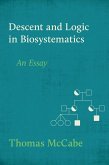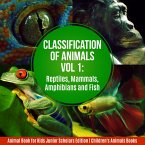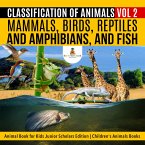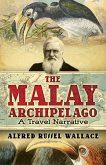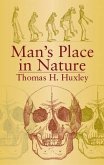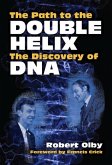A major influence on the development of American scientific culture, Swiss-born Louis Agassiz (180773) was one of the great scientists of his day. A student of anatomist Georges Cuvier, Agassiz adapted his teacher's pioneering techniques of comparative anatomy to paleontology, and he rose to prominence as a distinguished systematist, paleontologist, and educator. Agassiz introduced science to ordinary citizens to an unprecedented degree; people around the world read his books, sent him specimens, and consulted his opinion.
Agassiz was also a staunch opponent of the theory of evolution, and he was among the last of the reputable scientists who continued to reject the concept after the publication of The Origin of the Species. All of nature bore testimony to a divine plan, Agassiz believed, and he could not reconcile himself to a theory that did not invoke God's design. Ironically, his 1851 Essay on Classification provided Darwin and other evolutionists with evidence from the fossil record to support the theory of natural selection.
A treasure of historically valuable insights that contributed to the development of evolutionary biology, this volume introduced the landmark contention that paleontology, embryology, ecology, and biogeography are inextricably linked in classifications that reveal the true relationships between organisms. Its emphasis on advanced and original work gave major impetus to the study of science directly from nature, and it remains a classic of American scientific literature.
Agassiz was also a staunch opponent of the theory of evolution, and he was among the last of the reputable scientists who continued to reject the concept after the publication of The Origin of the Species. All of nature bore testimony to a divine plan, Agassiz believed, and he could not reconcile himself to a theory that did not invoke God's design. Ironically, his 1851 Essay on Classification provided Darwin and other evolutionists with evidence from the fossil record to support the theory of natural selection.
A treasure of historically valuable insights that contributed to the development of evolutionary biology, this volume introduced the landmark contention that paleontology, embryology, ecology, and biogeography are inextricably linked in classifications that reveal the true relationships between organisms. Its emphasis on advanced and original work gave major impetus to the study of science directly from nature, and it remains a classic of American scientific literature.
Dieser Download kann aus rechtlichen Gründen nur mit Rechnungsadresse in A, D ausgeliefert werden.
Es gelten unsere Allgemeinen Geschäftsbedingungen: www.buecher.de/agb
Impressum
www.buecher.de ist ein Internetauftritt der buecher.de internetstores GmbH
Geschäftsführung: Monica Sawhney | Roland Kölbl | Günter Hilger
Sitz der Gesellschaft: Batheyer Straße 115 - 117, 58099 Hagen
Postanschrift: Bürgermeister-Wegele-Str. 12, 86167 Augsburg
Amtsgericht Hagen HRB 13257
Steuernummer: 321/5800/1497
USt-IdNr: DE450055826
Bitte wählen Sie Ihr Anliegen aus.
Rechnungen
Retourenschein anfordern
Bestellstatus
Storno



